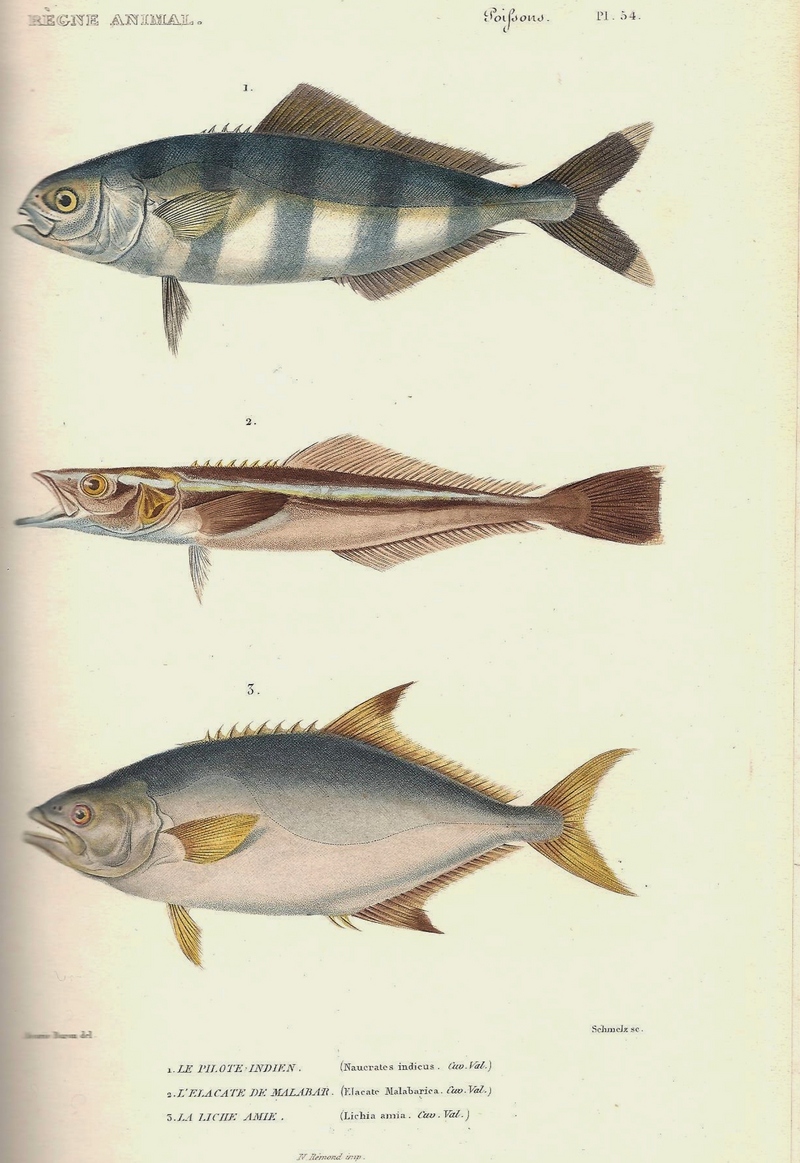|
| 질의: Tropical fish | 결과: 209번째/762 | |
pilot fish (Naucrates ductor), cobia or black kingfish (Rachycentron canadum), leerfish or garrick (Lichia amia)
| 제목: | pilot fish (Naucrates ductor), cobia or black kingfish (Rachycentron canadum), leerfish or garrick (Lichia amia)
| | 올린이: | Wiki Photos (---@---.---)
| |

| 해상도: 1229x1787
파일크기: 811764 Bytes
촬영일: 2013:04:19 16:13:28
등록시간: 2017:03:21 10:08:01
|
Français : Planche N°54 du livre "Le règne animal distribué d'après son organisation" par Georges Cuvier (Tome 8), seconde édition de 1828, représentant :
-en haut : Naucrates indicus = pilot fish (Naucrates ductor)
-au milieu : Elacate malabarica = cobia, black kingfish (Rachycentron canadum)
-en bas : lichia amia = leerfish, garrick (Lichia amia)
Date 19 April 2013, 16:13:28
Author Rvalette https://commons.wikimedia.org/wiki/User:Rvalette
Source: https://commons.wikimedia.org/wiki/File:Cuvier-54-Naucrates_ductor,_elacate,_liche.jpg
The pilot fish (Naucrates ductor) is a carnivorous fish of the trevally, or jackfish family, Carangidae. It is widely distributed and lives in warm or tropical open seas. The pilot fish congregates around sharks, rays, and sea turtles, where it eats ectoparasites on, and leftovers around the host species; younger pilot fish are usually associated with jellyfish and drifting seaweeds.
The cobia (Rachycentron canadum) is a species of perciform marine fish, the only representative of the genus Rachycentron and the family Rachycentridae. Other common names include black kingfish, black salmon, ling, lemonfish, crabeater, prodigal son and black bonito.
The Leerfish, also Garrick (Lichia amia) is a species of marine fish in the Carangidae family, and is native to the Mediterranean and the coastal waters of western Africa to the coastal waters of eastern South Africa. Also recorded in the Black Sea. These fish can reach 1.5 m in length and 18.8 kg in weight. They inhabit the coastal wave zone where they form small shoals to hunt other smaller fish, favouring Pomatomus saltatrix. |
^o^
동물그림창고 똑똑전화 누리집
^o^
|
|